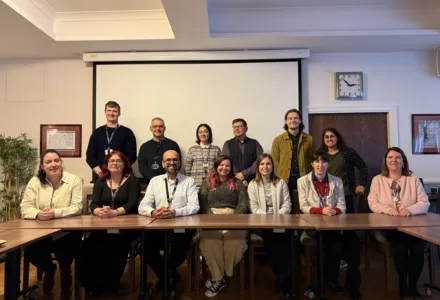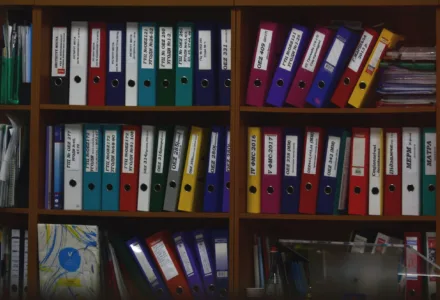At the risk of sounding dramatic, Open Data is becoming more and more important in the world in general, and business in particular.
The UK has already made big steps towards wider open data use, such as the introduction as the Open Government Licensing, and the work of the Open Data Institute. But open data adoption and dissemination by businesses is still not a common practice, which means that businesses could be missing out on some crucial benefits.
What is Open Data, and how is it different from just posting it on the Internet?
One of the biggest misconceptions that we face at LORIC is the idea that, just because information has been put in a public place, it is free game. And while a lot of information is shared – particularly on the Internet – in a free format, that does not automatically make it open.
For example; what the weather is like in a certain location is something most of us can look up quite easily. However, if you read the site’s Terms and Conditions, you will find that it likely forbids the reuse of that data for commercial purposes. Meaning, you can’t just take the readings and post them on your website, presenting them as your own.
Another example; Journalistic articles often cite figures and findings from scientific studies (often interpreting a press release, or an article abstract, for the reader). They can do so under the Fair Use Provision in the Copyright, Designs and Patents Act of 1988, which allows the reuse of information for the purposes of reporting, education, or criticism. However, if you were to take those figures and findings and use them in a commercial product (or tried to pass them off as your original research) you would likely be in trouble.
Open Data is data that is free to access and reuse for any purpose, commercial or non-commercial, by both private organisations and government agencies. Data may be shared on the Internet, but unless explicitly specified through open licensing (Creative Commons with Attribution, or Open Government, or similar) its usage for commercial purposes isn’t allowed.
Open Data for Commercial Use – pitfalls and common concerns
The obvious concerns for organisations looking to open their data are whether doing so would hurt their competitive advantage. There are datasets that may be too commercially sensitive to be made open, and of course, if the dataset contains any sort of personal information, then that information is protected by the General Data Protection Regulation (GDPR) and should definitely be kept secure.
Beyond that, there are also certain datasets that may appear perfectly innocuous, but on closer inspection might reveal that personal data can still be derived through triangulation and analysis. At LORIC, one of our first actions before we so much as thought about making data open was to discuss our ethics processes and establish a protocol by which we assessed the degree to which an individual dataset could be made open before the risk of triangulation became too great (spoiler alert: it didn’t take us very long.)
Finally, even if the risks to personal data and commercially sensitive information were negated, the question of whether a dataset is useful enough to be made open stands. There are companies who do not consider their data interesting enough to be used in-house, let alone by other people, and one of the criteria for a successful publication of data is whether or not it is re-used more widely.
The case for being more open
All of the above concerns are valid and worth examining in detail before an organisation makes any steps towards being more open. There can be a significant case made for companies to share data with the world, but the decision is based entirely on what is right for the organisation.
The first main argument is for the sake of transparency and trust-building. Organisations opening their data can be a big gesture, possibly a very vulnerable one, which relies a lot on goodwill of re-users. Far from being a simple PR move, a move toward open data signals to both experts and general public that the organisation is willing to involve them, that it is open to collaboration, and is accepting of criticism (first rule of putting something out for public consumption: You should be prepared for mistakes to be pointed out to you).
The second argument may seem rather counter-intuitive, but opening data can be seen as maximising its productivity. Data that the company is not using, data that the company cannot find a benefit for, can be a great candidate for such operations, because it may be used for innovation in another field. If Coca Cola, for example, decided one day that its formula is no longer useful for them and made it open (on the condition that it was properly attributed), it would be no loss to them if academics used it in chemistry studies, or other companies used it as a way to innovate their own products (medicines, perhaps, or engineering). It would be a way to maximise the usefulness of the data, and a great marketing for Coca Cola because any big breakthroughs would have to give them credit for providing one of the source materials.
This cannot be stressed enough – innovation is important for change, and change is good for the market. Boosting competition encourages the economy to grow and develop, as consumers are given more, and better, choices. Lack of data means that companies have to either invest in expensive, time-consuming studies; constantly repeating the same experiment from scratch means there is less opportunity to spot mistakes in the original data, and there are less chances for innovators to come up with anything truly ground breaking.
Which leads us to the final – but by no means least important – argument for being more open: as human beings, we are limited to our own individual point of view when making an assessment. Sometimes a researcher or an executive would have a little more to go on than the average person in determining whether a dataset would be useful to the wider public, but in general, we can only go on the information that is available to us at any point in time. We cannot say for sure if a dataset would be useful, but we can make enquiries, draw attention to it, and monitor interest by seeing how often it is reused and cited. By pre-emptively dismissing data as “not interesting” based on our own field, we ignore the role of creative, lateral thinking in innovation across the board. Open data is often seen as a crucial aspect of civil society precisely because it invites people to participate and allows collaboration across sectors. In a time of closing borders and increasingly limited cooperation, it is more important than ever not to put constraints on economic creativity.
Related Posts

Visits to BGU from Innovate UK

LORIC Wraps Up Successful SED Project

Innovate UK’s East Midlands Knowledge Exchange Forum hosted on BGU campus!

Understanding the Economic Impact and Future Potential of Greater Lincolnshire’s Sport, Physical Activity & Leisure Sector

LORIC Wins Venue of the Year Award

Digitising the Archive of the 20th Century Philosopher John Macmurray
